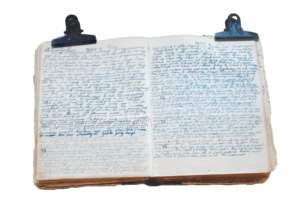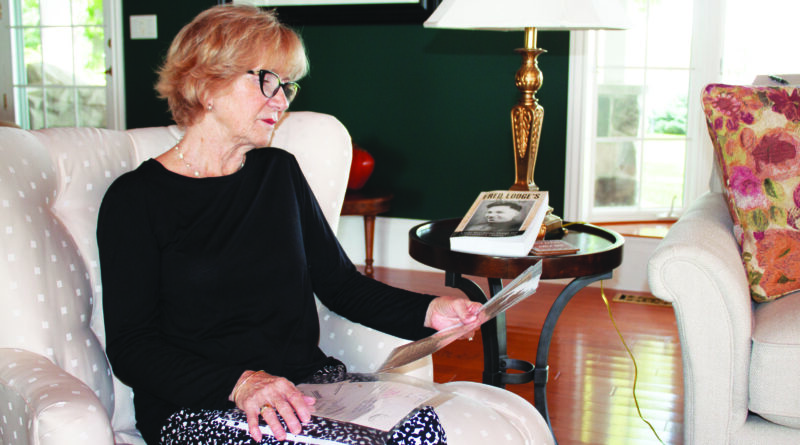Fred Lodge’s Diaries
“A quiet man’s journey through hell”
“On August 19, 1942 the Canadian 2nd Division attempted a raid on the French coastal city of Dieppe; it was a disaster…Casualties totaled 3,367, including 916 dead and 1,946 prisoners of war. One of these prisoners was Lance-Corporal Fred Lodge, a member of the Queen’s Own Cameron Highlanders of Canada…”
So reads part of the introduction to “Fred Lodge’s Diaries” – a compilation of seven journals kept by Lodge at the request of his sister as he left Kenora ON for Winnipeg MB to enlist in the Canadian army in September 1939.
Lodge was the youngest of nine; his older brother was killed in WWI and a sister died of scarlet fever the same year. In 1920 his mother passed away – he was seven years old – and his raising was left to his sisters as his dad was working to feed his family. Fred Lodge was a self-educated man with only a Grade 9 education, having to leave school at age 13 so he could work to help support the family.
Lodge’s daughter, Bonnie Lodge Fraser, talks about the diaries, and the decision to publish them eighty years after they were begun. “We knew of the diaries as kids, but we weren’t allowed to touch them. Dad never talked about what happened during the war, so we had no idea.
“My cousin, Jim Hyatt, and I felt it was important to share these diaries – it’s quite a history, quite a story, an unfiltered view of the average soldier in his own words,” she explains.
It took Hyatt and his wife, Wendy, a year and a half to transcribe the hand-written diaries, and six months for Fraser and Hyatt to edit and proofread the compilation.
Asked how she was affected as she worked her way through the diaries, particularly the volumes which chronicled her father’s three-year internment in a German POW camp, Fraser says, “I got to know a man I had only known as my dad. Now I understand why he said the things he said and did the things he did.”
She elaborates, “There were times we (brother Fred Jr., sister Carol and herself) would come home from school and he would be sitting at the table, staring into space for the longest time. I can’t begin to imagine what he was remembering.”
Although Lodge had no formal training as a writer, the diaries are remarkably well-written, reading like a voice-over in a movie. His wry wit and keen observations  make for an entertaining and enlightening read – a rare insight into the ordinary life of an ordinary soldier who found himself, ultimately, in a most extraordinary situation and who survived to bring the story home.
make for an entertaining and enlightening read – a rare insight into the ordinary life of an ordinary soldier who found himself, ultimately, in a most extraordinary situation and who survived to bring the story home.
The safekeeping of the first three volumes was entrusted to kinfolk he visited while stationed in England and who obligingly sent them back to Canada. Volumes four and five came home with Reg, a comrade who had to return to Canada prior to August 1942.
Lodge kept the POW diaries with him through the remainder of the war and guarded their safekeeping in an inventive fashion. Garden seeds were sent to him from Canada and he planted a garden in the POW camp to feed himself and his comrades. He wrapped his journals in oilcloth and kept them buried in the garden to prevent them being discovered.
Following the publication of the book, Fraser and Hyatt were honoured to travel to Winnipeg to speak to the Queen’s Own Cameron Highlanders on August 19, 2019 – the 77th anniversary of the Dieppe raid – where they presented a copy of the book to the regiment.
Pre-COVID, there were other speaking engagements, and Fraser plans to continue with them in the future.
“Fred Lodge’s Diaries” is available through several online sellers, including Amazon and Friesen Press, and locally at The Book Lady, 24 Market St., Fenelon Falls.
By Belinda Wilson




